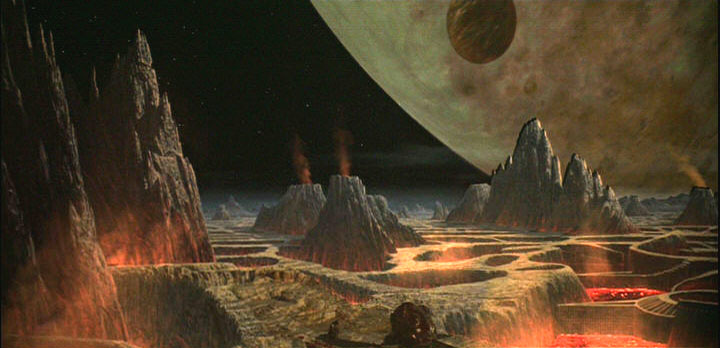So damn tired of the emotional Spock. It's a real misread of the character and defeats the whole purpose of presenting a stoic character as a character-study.
Nah, ^ that's a total misread of Spock.
Quite. Here's a pertinent passage from Stephen E. Whitfield and Gene Roddenberry's
The Making Of Star Trek (1968, reprinted 1994), pg. 226:
"Because of his mother's origin, however, Spock does have a human side to his personality. A human side with emotions. The result is a continual struggle within himself to suppress his feelings. But his Vulcan half is normally in control. Conditioned since childhood not only to deny but also to be ashamed of emotion, Spock thrusts feelings aside and finds a "logical" rationalization to explain it.
WHICH IS ONE OF THE REASONS SPOCK IS AN INTERESTING CHARACTER: THE TURMOIL AND CONFLICT WITHIN. AS HALF-HUMAN AND HALF-VULCAN, HE IS CONTINUALLY AT WAR WITHIN HIMSELF. FOR SOME REASON THIS MAKES HIM PARTICULARLY DELIGHTFUL TO OUR FEMALE VIEWERS, AND OF ALL AGES. I GUESS THEY KNOW THAT SOMEWHERE INSIDE HIM THERE IS A STRONG, EMOTIONAL EARTH MAN TRYING TO COME OUT. AND THEY WOULD LOVE TO HELP."
(The all-caps text is used to indicate Roddenberry's personal comments in the book.)
When you see Spock laid bare under the influence of the virus in "The Naked Time" (TOS), that is the "real" Spock you are seeing there as much as at any other time in TOS. (Just as you see the "real" Kirk, terrified of losing the
Enterprise, and yet tormented by the loneliness of command.) That virus wasn't
imposing those characteristics on them; it was merely
revealing them. As Sybok would say,
"I've done nothing. This is who they are. Didn't you know that?" Of course, Spock grows as a character from there...but ultimately
not by stoically denying that part of himself. On the contrary, the complete opposite—by gradually
learning to accept and be at peace with it. That's what his whole arc in TMP and the subsequent films is about!
-
MMoM















